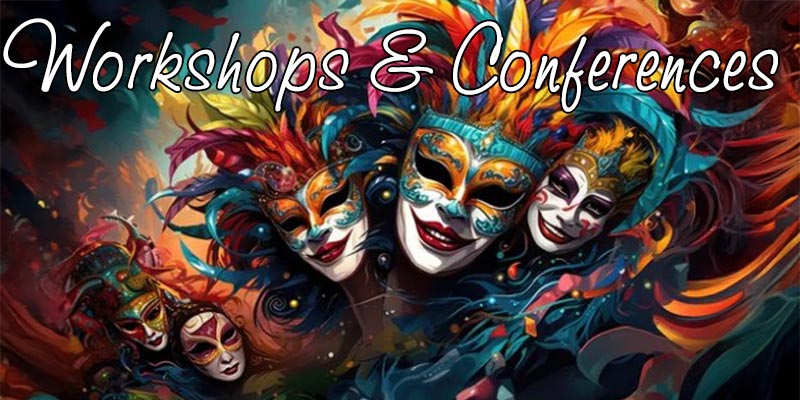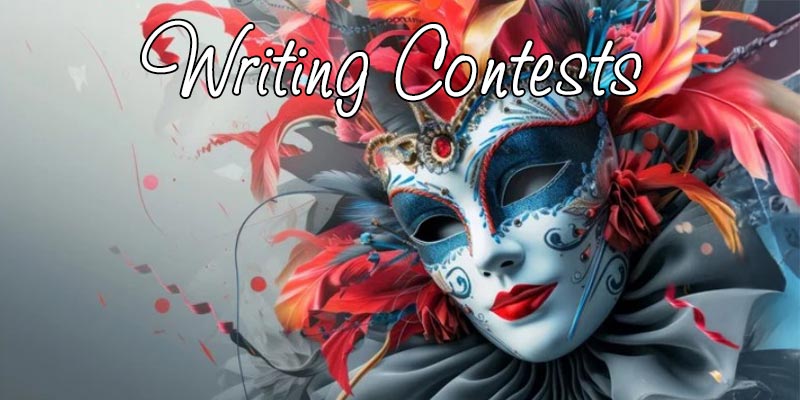
The site for writers of all genre, and the readers who love them. Find what you want to know.
Reconsider Hand Writing

By Mia Zachary
Novelist Robert Stone said: “I write in longhand in order to be precise. On a typewriter or word processor you can rush something that shouldn’t be rushed — you can lose nuance, richness, lucidity. The pen compels lucidity.”
Another novelist who goes old school is Neil Gaiman, author of American Gods and Neverwhere, writes his first drafts in longhand using fountain puns and moleskin. “One reason I like writing by hand is it slows me down a little, but it also forces me to keep going: I’m never going to spend half a day noodling with a sentence to try and get it just right, if I’m using a pen. I’ll do all that when I start typing.”
The most obvious argument for returning to pen and paper is that writing by hand eliminates- or at least minimizes- the inevitable distractions of e-mail, instant-messaging, digital games with flying pigs and web-browsing for everything except research.
I eventually make my way to the PC or to my laptop, but hand writing has some superior benefits to composing on the computer:
- Writing by hand keeps the emphasis where it needs to be — on getting the words right, not on fonts, margins, or program settings
- Writing by hand can get ideas out faster and simplifies the effort of organizing ideas
- And, most importantly, hand writing acts as a powerful reminder that a draft is a just a draft, not a polished work ready to submit.
Hand writing compels you to move forward across an entire connected gesture and integrates three distinct brain processes—visual, motor, and cognitive. Writing by hand requires executing sequential finger movements activate brain regions involved with thought, language and short-term memory—the mind’s system for temporarily storing and managing small pieces of information.
That’s especially true for visual learners like myself, I always remember things I wrote myself better than I remember things that were typed. I’ll easily recsll which side of the paper it was written on, what shape my notation formed and how my words appeared. It may seem trivial to writers who prefer electronic mediums, but I have been able to locate many a late night ‘great idea’ simply by envisioning where and how and why I scribbled my notes the way I did.
The human brain has several distinct regions that process visual information, auditory input, emotions, verbal communication, etc. Although these regions communicate with each other, when presented with multi-faceted information, each region has its own processes to complete first. When you’re writing, spatial relations between various bits of information are created in your brain.
So what point am I trying to make? Why am I asking you to reconsider hand writing? Because when you write something down, our brain can’t tell that you’re not actually doing that thing. Envisioning doing something can “trick” the brain into thinking it’s actually doing it. This means that brainstorming, creative visualization and just plain daydreaming help us as writers to craft settings and characters, emotional scenes and action sequences. Then handwriting these elements triggers the brain to believe “so let it be written, so let it be done” Thus handwriting helps us to turn those daydreams into a cohesive literary work.
Even before we begin the physical act of writing, our brains are putting some degree of effort into evaluating, prioritizing and organizing the information we are imagining. That process helps to install ideas more firmly in our minds, leading to greater recall down the line. Writing by hand strengthens the process by which creative information is stored in our memory.
For the past couple of years, I have signed myself up for National Novel Writing Month- 50k words in 30 days. Each year I procrastinated, got distracted , became frustrated and didn’t ‘win’. Until 2012. That’s the year there weren’t enough plugs in the cafe and I had to resort to using an ink pen and a notebook… I finished the month with 49, 410 words, 95% of which were handwritten and 80% of which were crafted well enough to keep in the manuscript. Drafting my novel this way felt amazing, liberating and most importantly productive.
There is great value in writing slowly and taking time over ideas, as well as in scribbling as fast as your hand allows, to capture your thoughts. Grab your pen and give yourself permission to write whatever you can come up with. Just dump your thoughts and ideas straight onto the paper. Feel free to scribble, doodle, jot notes in the margins and squeeze extra sentences between the lines. Writing by hand encourages focus on the story process and brings the writer neurologically and psychologically closer to the work itself. But, if you’re anything like me, you probably need to work on your penmanship ☺
Stephen King wrote Dream-catcher all in longhand using “the world’s finest word processor, a Waterman cartridge fountain pen.” He says, “First of all, writing longhand was physically easier for me, because of the location where I can work. But also, it brought the act of writing back to this very basic level, where you actually have to take something in your fist and make the letters on the page… It slows you down. It makes you think about each word as you write it, and it also gives you more of a chance so that you’re able– the sentences compose themselves in your head. It’s like hearing music, only it’s words. But you see more ahead because you can’t go as fast.”
AGENTS & EDITORS
- Agents: Knowing When To Hold One and When To Fold
- Copyright Primer, Know Your Rights
- Getting Offers from Multiple Literary Agents
- Landing An Agent Elements Of A Winning Query
- Literary Agents List
- Preditors and Editors
- Publishing, Writing Terms, Acronyms
- Tips for a Successful Editor Appointment
- Want More? Here’s How to Get It
- What NOT to Do When Beginning Your Novel
- Windup for the (Story) Pitch
- Write the Perfect Book Proposal
CALLS FOR SUBMISSIONS
![]()
CALLS FOR SUBMISSIONS MAIN PAGE
- 2026 FEB Calls for Submissions
- 2026 JAN Calls for Submissions
- 2025 DEC Calls for Submissions
- 2025 NOV Calls for Submissions
- 2025 OCT Calls for Submissions
- 2025 SEP Calls for Submission
- 2025 AUG Calls for Submission
- 2025 JUL Calls for Submission
- 2025 JUN Calls for Submission
- 2025 MAY Calls for Submission
- 2025 APR Calls for Submission
- 2025 MAR Calls for Submission
COMPUTER TIPS
- ASCII Characters
- Building Your Web Site and Doing It Right
- Don’t Be a Victim-Scams, Identity Theft, Urban Legends
- Don’t Spread Scams
- Free AI Tools That Can Be Used In Business Writing
- How to Annoy Your Website Visitors
- If Your Data Is Compromised
- Internet Safety: Guide to Keep Your Information Safe Online
- Knowing Your Target Audience
- Online Safety for Kids and Teens
- Stopping Viruses from Propagating Through Your Email
- The Top 10 Email Errors
- Word Processors Through Time: Before MS Word & Google Docs
GRAMMAR & FORMATTING
![]()
GRAMMAR & FORMATTING MAIN PAGE
- Achieving 250 Words / 25 Lines Per Page
- And Sammy, Too? Oh, No!
- Changing Double Hyphens to EM Dashes in Word
- Edit Easier
- High Hopes–Avoiding Common Mistakes
- Misused Words
- Navigating In Your Novel
- Proofreaders Marks
- Research Links
- Rules for Writers
- Slang and Jargon Souces
- Tightening Your Manuscript and Trimming the Word Count
INSPIRATION-& MOTIVATION
![]()
INSPIRATION & MOTIVATION MAIN PAGE
- A Dream Realized
- Beyond the Basics
- Dumb Little Writing Tricks That Work
- Finding Time to Write
- Five Ways to Promote Yourself
- How Not to Procrastinate
- How to Quit Writing and End up on the Bestseller Lists
- Ideas Escape Me
- Keeping an Idea Book
- Love to Write: Here Is How You Can Build Your Career
- Making Time for Self-Care While Running a Business
- Moving Up the Rejection Ladder
- Pop Quiz: Who Are You?
- Rules for Writers
- The 8 Habits of Highly Successful Young-Adult Fiction Authors
- The Art of Being Rejected–475 Words
- The Juggling Act
- The Literary Food Chain
- Various Types of Writing for Young Writers
- Why Article Writing Should Be A Part Of Your Career Development Strategy
- Write Better Naked
- Writer’s Conferences Do You Really Need To Attend?
- Writing By Moonlight
MARKETS & JOBS
- 35 Online Work Ideas to Earn Good Money Whilst Studying
- An Interview with Holly Ambrose
- Copyright Primer, Know Your Rights
- EBooks-Fears to Possibilities
- Finding Markets Fiction and Nonfiction
- Freelance Writing 101
- Getting Offers from Multiple Literary Agents
- How To Be a (Shiver) Reporter
- How To Market Your Book After You’ve Written It
- How to Write a Novel Synopsis
- Love to Write: Here Is How You Can Build Your Career
- Magazine Links
- Making Money As a Corporate Freelancer
- Market News–All Genres
- Need a Clip? Open a Newspaper
- Newspaper Writing Resources
- Path to Self-Publishing Success
- Publishing, Writing Terms, Acronyms
- Science & Science Fiction Writing Organizations
- Selling to Children’s Markets
- Submission Tracking
- Submitting to UK Markets
- Syndication 101
- To Specialize, or Not to Specialize?
- Ultimate Guide to Being a Freelancer 2025 Update
- What Are Your Chances of Getting Published?
- Why Article Writing Should Be A Part Of Your Career Development Strategy
- Why E-Books?
- Words That Pay-The Rewards Of Choosing Writing As A Job
- Write the Perfect Book Proposal
- Write Your Way to $1000 a Month
- Writing Groups List
- Youth Writing Markets
ONLINE SAFETY
PUBLISHING
- Agents: Knowing When To Hold One and When To Fold
- Copyright Primer, Know Your Rights
- Getting Offers from Multiple Literary Agents
- How To Market Your Book After You’ve Written It
- How to Write a Novel Synopsis
- Landing An Agent Elements Of A Winning Query
- Love to Write: Here Is How You Can Build Your Career
- Making Money As a Corporate Freelancer
- Navigating In Your Novel
- Path to Self-Publishing Success
- Publisher’s Websites
- Publishing, Writing Terms, Acronyms
- Rules for Writers
- Science & Science Fiction Writing Organizations
- Submission Tracking
- Syndication 101
- The Great Limbo Mystery Question
- Tightening Your Manuscript and Trimming the Word Count
- What Are Your Chances of Getting Published?
- Why Article Writing Should Be A Part Of Your Career Development Strategy
- Why E-Books?
- Write the Perfect Book Proposal
WORKSHOPS & CONFERENCES
WRITER'S LIFE
- A Dream Realized
- A Writers Dream-The Home Office
- Affirm All You Want
- Copyright Primer, Know Your Rights
- Finding Time to Write
- Finding Your Writing Compass: A Guide to Freelance Adventures
- How To Be a (Shiver) Reporter
- How To Write Your Own Press Releases
- Keep a Clipping File
- Keeping an Idea Book
- Love to Write: Here Is How You Can Build Your Career
- Making Time for Self-Care While Running a Business
- Mommy’s Muse
- Moving Mountains
- Mud Pies
- Pop Quiz: Who Are You?
- Teach Yourself to Write
- The 8 Habits of Highly Successful Young-Adult Fiction Authors
- The Art of Procrastination
- Various Types of Writing for Young Writers
- Working with a Critique Group
- Writer’s Conferences Do You Really Need To Attend?
- Writing Conferences-Educating and Inspiring
WRITING CONTESTS
![]()
ABOUT WRITING CONTESTS
- A Guide to Assessing Writing Contests
- Writer’s Conferences Do You Really Need To Attend?
- Writing Groups List
- 2026 FEB Writing Contests
- 2026 JAN Writing Contests
- 2025 DEC Writing Contests
- 2025 NOV Writing Contests
- 2025 OCT Writing Contests
- 2025 SEP Writing Contests
- 2025 AUG Writing Contests
- 2025 JUL Writing Contests
- 2025 JUN Writing Contests
- 2025 MAY Writing Contests
- 2025 APR Writing Contests
- 2025 MAR Writing Contests
WRITING TOOLS & APPS
![]()
WRITING TOOLS & APPS MAIN PAGE
- And Sammy, Too? Oh, No!
- Beyond the Basics
- Changing Double Hyphens to EM Dashes in Word
- Dumb Little Writing Tricks That Work
- Finding Your Writing Compass: A Guide to Freelance Adventures
- Free AI Tools That Can Be Used In Business Writing
- Helpful Books
- High Hopes–Avoiding Common Mistakes
- Ideas Escape Me
- Knowing Your Target Audience
- Magazine Links
- Misused Words
- Path to Self-Publishing Success
- Pop Quiz: Who Are You?
- Reconsider Hand Writing
- Research Links
- Slang and Jargon Souces
- The 8 Habits of Highly Successful Young-Adult Fiction Authors
- Unblocking Your Muze
- Various Types of Writing for Young Writers
- What NOT to Do When Beginning Your Novel
- Why Article Writing Should Be A Part Of Your Career Development Strategy
- Word Processors Through Time: Before MS Word & Google Docs
- Working with a Critique Group
- Writing Groups List
- You Can Write A Short Story: Part 1 The Story Idea
- You Can Write A Short Story: Part 2 The Meat of the Story
- You Can Write A Short Story: Part 3 The Climax





